
Image Courtesy TheLastMiles.com
Recently I wrote a rather large article full of ‘quickie reviews’ for recent Jazz music releases – and the response I have gotten has been amazing! I have heard from musicians, jazz lovers, general music fans and folks who simply wanted to express appreciation that I was supporting the ‘indie’ movement even thought they had no interest in the music.
Even as that article was published, I had a couple of new releases I was listening to, a couple new recordings that were about to release … and a couple that should have been in the article but slipped through the cracks. I was also fortunate enough to be contacted by Dave Chisholm, who provided me a digital copy of his new release Radioactive after I was able to check out a couple of tracks on his website (one of those great guidelines – always check out the demo if you can).
So instead of waiting until such an unwieldy amount of great music overwhelms me again, here is a quick look at a half-dozen very recent jazz releases definitely worth checking out!
Summary: Note to those who thing the era of the large ensemble is dead – you need to update your thinking. Last time I talked about Darcy James Argue, and there has been great stuff by Maria Schneider, Tim Hagans, and more! Now you can add Dave Chisholm to that list. The trumpeter from Utah (soon coming to Rochester to pursue is doctorate in music according to his blog) has just released a CD with some great sounding big-band compositions and improvisation.
The thing I love about the ‘new big band’ music like Chisholm’s is that it combines small ensemble open-ness and intercommunication and large group harmonic structure and depth of composition. The title track is a great example – The opening uses the full effect of the large group to build the dramatic effect then breaks out to allow a nice collaborative improvisation until the main theme takes over. The title track is my favorite, but don’t dismiss the rest of the CD – repeated listenings have endeared me to the whole recording: there is some great improvisation and passionate interplay here as well as the intricate compositions.
Choice Track (and why): Radioactive – it starts slow and introspective with a nice building progression, and pretty soon it rips wide open and you are ready for whatever comes next.
You Might Love This If: You are a fan of classic big-band work of innovators like Mingus and Ellington, have enjoyed stuff like the Darcy James Argue I featured last time, and want even more of this modern take on large group jazz.
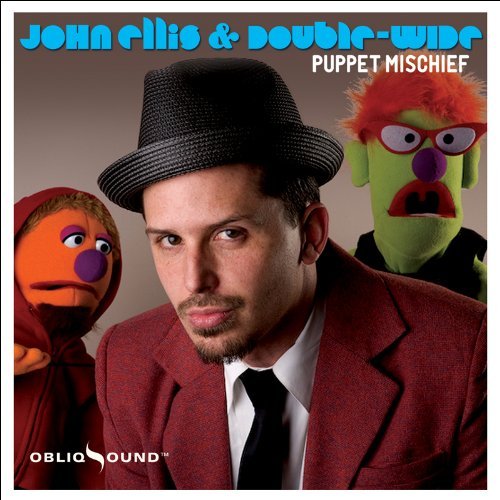
John Ellis & Double Wide – Puppet Mischief
Summary: I remember the first time I saw the Dirty Dozen Brass Band. I was pretty serious about music at that point, and was at the Newport Jazz Festival to see serious musicians performing music … seriously. Then all of a sudden these guys were up there laying down a groove so infectious you couldn’t help but move – having a blast, not being overly serious … and yet STILL making awesome music. That pretty much describes how I feel about John Ellis & Double Wide’s new recording Puppet Mischief .
Starting with Okra & Tomatoes and going from there, this is a recording that never takes itself too seriously, but that doesn’t mean these guys aren’t serious about their music – the interplay is pure New Orleans with strong individuality right alongside unselfish sharing and great ensemble work. This is fun and joyous music that is highly rewarding.
Choice Track (and why): Dubinland Carnival – juxtaposing great composed harmonies and melodies with excellent improvisation, this feels like it is coming from a dozen directions all at once – but in a good way. I love how so many younger musicians show their progression through classic jazz and modern music alike.
You Might Love This If: You like music that is pure fun with a nod to the classic jazz of New Orleans.
Summary: Talk about serendipity – back in April I read a piece on NPR’s website about a solo saxophone recording and grabbed the music right away from Amazon and listened to it on my PC laptop while away on business. I subsequently forgot to transfer it to my Mac and therefore it didn’t get on my iPod. Then recently I wrote about the return of the Jazz Session podcast to iTunes … and as I was going back through the ones I missed I found Sam Newsome and thought ‘oh no – I never transferred that!’
Solo saxophone recordings by an avant-garde musician are extremely narrow in their appeal, regardless of the quality. I have a two record set of Anthony Braxton playing solo alto sax from the late 70’s that I cherish (as it is now 30 years out of print!), but that I clearly remember scaring our cats when I would listen to it! Sam Newsome’s Blue Soliloquy is similar – Newsome constructs great tunes here, working magic using his masterful expressive technique to develop harmonies, overtones, percussive sounds and more. He makes full use of the instrument developing a 24-tone sound palate with micro-tonal compositions that sing and swing all at once.
My family – and the friends of my kids who were visiting one day – are in universal agreement in their dislike of this music. There is no middle ground – this is uncompromising and harsh in many ways, yet thoughtful and cerebral in many others. For nearly everyone on the planet this is one to skip – but if you can get past the difficult sonorities, you will find another recording at the pinnacle of my list of favorites of recent years.
Choice Track (and why): 24 Tones – I could have chosen just about anything from this recording, from the heaviness of the opening blues to the percussive later ‘bamboo’ track, but the micro-tonal inventions and self-harmonizations of 24 Tones make this my favorite song on a completely wonderful recording.
You Might Love This If: You currently own and regularly listen to solo saxophone recordings … and like them!
Summary: Dr. Lonnie Smith is often confused with Lonnie Liston Smith, which isn’t surprising since both play keyboards, both play jazz, and only about 1.5 years separates the two in terms of age. But while Lonnie Liston Smith is most famous for his mid-70’s to early 80’s work with Lonnie Liston Smith & the Cosmic Echoes, Dr. Lonnie Smith was relatively quiet during that period. Smith was busy etching a great sound alongside George Benson (pre -pop era) in the late 60’s and has more recently started more frequent creative output. Spiral is his eighth release this decade … and is quite a fun record!
I have certainly enjoyed plenty of piano trio stuff recently, but organ trio presents a very different sonic landscape. The organ provides timbres across the spectrum, typically though swirling mid-rang chords and left hand stabs, and very often the organist lays down the bass line as well. This is the case on Spiral, leaving guitarist Jonathan Kreisberg plenty of space to thread in melodic lines and provide delicate comping. The song I Didn’t Know What Time It Was shows off the interplay and intense communication between the musicians.
The overall feel of the recording is smooth, free-flowing grooves, with a straight-ahead feel and a breeziness that belies the complexity and depth of what is happening. I have relatively few organ recordings, mostly Jimmy Smith stuff from the 60’s, but I thoroughly enjoyed this and have added it to heavy rotation on my iTunes library.
Choice Track (and why): Mellow Mood – Lonnie Smith taking on a classic Jimmy Smith song? Pure magic!
You Might Love This If: You love the sound of a great organ trio.
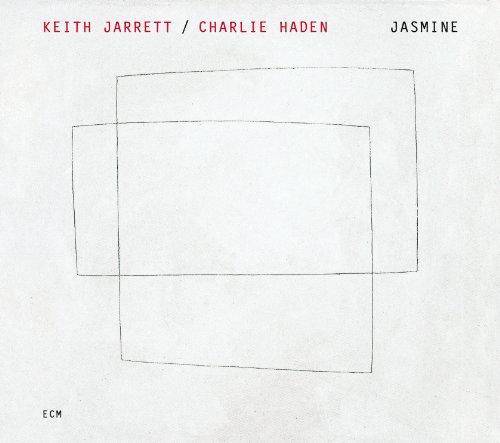
Keith Jarrett / Charlie Haden – Jasmine
Summary: It is somewhat odd that someone best known for his free-ranging long form improvisations has had a long-standing set of draconian rules in his concerts regarding noise and photography. In fact, at a recent concert Jarrett simply walked off the stage before a presumed encore when someone used flash photography as the trio took their bows. He has also stopped concerts because someone coughed excessively. So why put up with such garbage when we pay top dollar in an art form that is struggling for support?
We deal with it because of stuff like Jasmine – pure beauty that demands our undivided attention and a willingness to invest ourselves fully into the music. Keith Jarrett and Charlie Haden work together to the extent that they feel like two parts of the same being. The change between foreground and background is seamless and almost irrelevant – everything each says is critical to the whole of the music. This is an hour-long recording of beautiful duet ballads, yet it really is much deeper: it doesn’t give up its secrets easily, requiring multiple listenings to truly appreciate. It is recordings like this that remind us why jazz is such a special art form, and why Jarrett and Haden are masters of the form.
Choice Track (and why): Goodbye – poignant and touching from beginning to end, the feeling of sadness and heartache that pervades this reading is just amazing in its depth.
You Might Love This If: You are a fan of ballads at their purest and most romantic form.
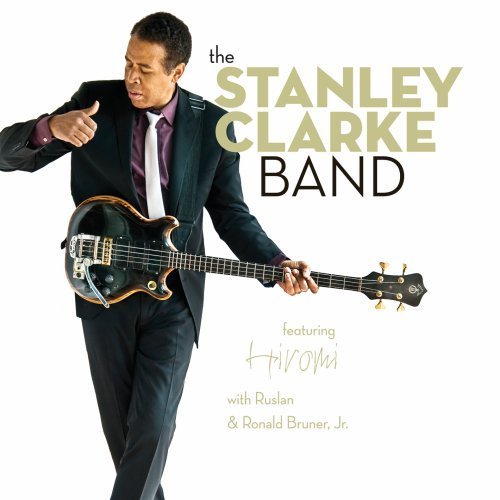
Stanley Clarke – The Stanley Clarke Band
Summary: Last time I reflected upon Stanley Clarke’s acoustic trio, now he is back with a just released electric jazz fusion recording. He said the goal was to make something with the feeling of his mid-70’s recordings School Days and Journey to Love. He succeeds here in pretty much every way possible – some of which are good, some not so great.
For almost the entirety of the twelve track CD, Clarke and his band work the lines between jazz, funk and fusion deftly. There are some really good compositions from pretty much everyone on the recording, including guest Hiromi (another artist seeming to frequently show up on stuff I buy lately!). There are also one or two fairly average tracks, such as “Larry Has Traveled 11 Miles and Waited a Lifetime for the Return of Vis”, which is supposed to be a fusion tribute, but feels too over-produced and by-the-numbers to compare favorably with some of the other songs.
But overall I really love this recording – it has a ‘band’ feel that really works and breaths life into the session more than the typical ‘collection of greats’, and Clarke himself is in fine form, showing how well he can combine his considerable chops with delicate melodic sense he’s developed through the years. It is a joy to hear him with some younger musicians really stretching out and showing what jazz-funk-fusion looks like in 2010.
Choice Track (and why): The sentimental favorite is the Return to Forever classic ‘No Mystery’, but the opening song Soldier is my favorite overall. It is a great composition by pianist Ruslan Sirota that starts slow and quickly opens up, reminding me in many ways of recent stuff by Darcy James Argue and the song Radioactive by Dave Chisholm (from above).
You Might Love This If: You like modern jazz/rock fusion with great instrumentalists and fun compositions – bonus if you love bassists and have followed Clarke and wished he would once again make something like his classic 70’s recordings!
Conclusions
Another thing that has amazed me is that during the time I’ve been writing these sets of reviews, my contacts and connections with new releases have improved: I knew in advance that the Stanley Clarke recording was coming, and also of the even more recently released Jason Moran ‘Ten’ CD (great stuff, BTW).
The bigger issue has now become finding the time to listen to all of this great music. I would have included the new Jason Moran, or even Steve Coleman’s new recording “Harvesting Semblances and Affinities”, but I haven’t had enough time to digest them and wanted to get this group complete before it got out of hand again!
So check out these great artists and be sure to share it with friends looking for some cool new music! And feel free to chime in with anything else cool you discover while listening!

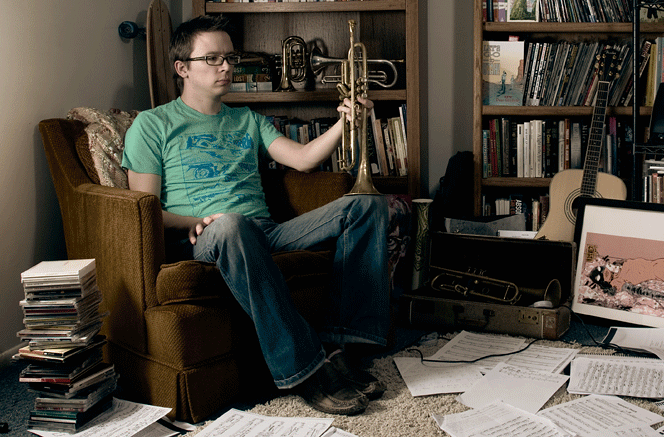
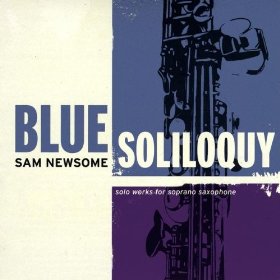
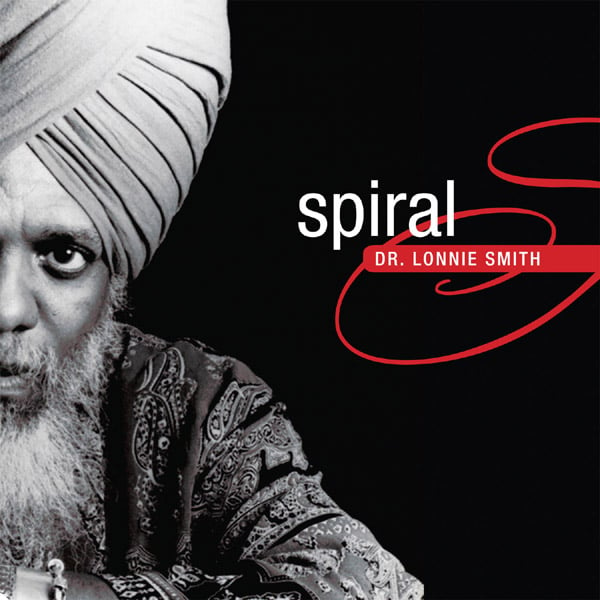
More Quickie Jazz Reviews: A Few New, and a Few That Slipped Through http://bit.ly/9jzFP8
http://www.geardiary.com/2010/07/06/more-quickie-jazz-reviews-a-few-new-and-a-few-that-slipped-through/ <—nice review of "Radioactive."